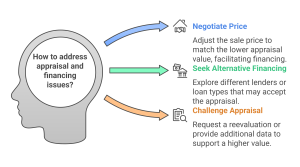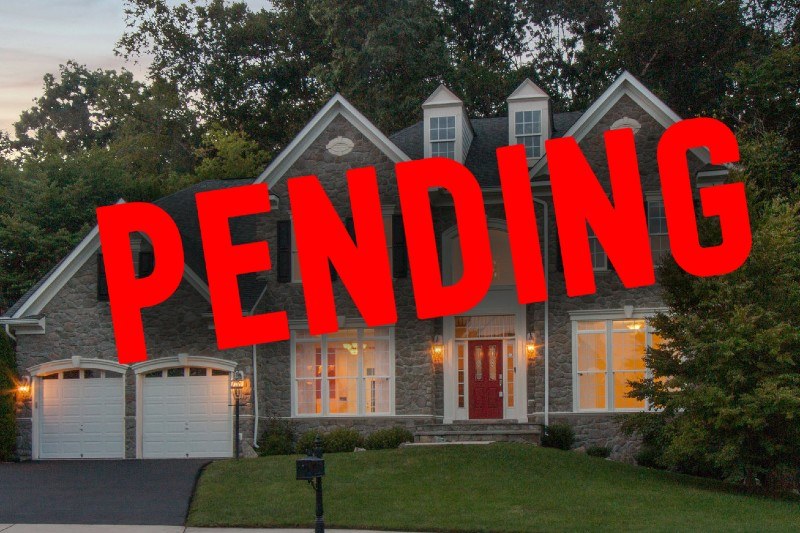Pending in real estate refers to a property that is under contract but has not yet reached its finalized closing stage.
Factors That Can Influence A Property’s Status
Table of Contents
A property’s status can be influenced by various factors. In real estate, “pending” indicates that a sale is in progress and conditions for closing are being met.
Buying or selling a property can be an exciting but complex process. Understanding the factors that can influence a property’s status is crucial for both buyers and sellers. From buyer acceptance of an offer to contractual obligations and timelines, several elements contribute to the pending status of a property.
Let’s delve into some key factors that can impact the status of a property in the real estate market:
Buyer Acceptance Of An Offer
The first crucial factor is the buyer’s acceptance of an offer. Once a seller receives an offer, they have the option to accept, reject, or negotiate it. If the seller accepts the offer, the property moves into the pending status, indicating that the seller has agreed to sell the property to the buyer.
This stage can be a turning point in a real estate transaction as it signifies progress towards a final sale.
Financing And Inspection Contingencies
Financing and inspection contingencies are essential considerations in real estate transactions. Many buyers rely on financing to purchase a property, making it a crucial factor that affects a property’s status. If the buyer fails to secure financing within the specified timeline, the sale may fall through, leading to a change in the property’s status.
Similarly, a home inspection is often conducted to assess the property’s condition. Inspections may discover defects or issues that require repairs. Based on the inspection results, buyers may request repairs or negotiate the sale price. If both parties agree on resolving any concerns, the sale can move forward, but if no resolution is reached, the pending status may change.
Appraisal And Home Inspection Results
In addition to the buyer’s inspection, a property appraisal is typically conducted to determine its market value. The appraisal can influence the sale transaction as it helps ensure that the property’s price aligns with its market worth. If the appraisal falls short, buyers and sellers may need to reevaluate the sale terms or negotiate a new price.
This appraisal plays a significant role in deciding the property’s status.
Title Search And Title Insurance
Before a property can move toward a final sale, a title search and title insurance are often necessary. A title search ensures that the property has a clear legal title, free of any liens, judgments, or other encumbrances. Title insurance protects both the buyer and lender from any potential title issues.
If any complications arise during the title search or insurance process, the property’s status may be affected.
Contractual Obligations And Timelines
Real estate transactions involve various contractual obligations and timelines that both parties must fulfill. These obligations might include deposit deadlines, contingencies, or other contractual terms outlined in the purchase agreement. Adhering to these obligations and timelines is crucial to maintain the pending status of a property.
Failure to meet these requirements may result in a change of status or even a terminated sale.
Understanding the factors that can influence a property’s status in a real estate transaction is essential for all parties involved. From the buyer’s acceptance of an offer to fulfilling contractual obligations and addressing appraisal or title issues, multiple factors play a role in determining the pending status of a property.
By being aware of these considerations, buyers and sellers can navigate the real estate process with confidence.
Potential Roadblocks In Completing A Pending Sale
Completing a pending sale in real estate can encounter potential roadblocks, including financing issues, inspection problems, or legal complications that may delay or even cancel the transaction.
In the world of real estate, a pending sale means that a buyer and seller have reached an agreement and are in the process of finalizing the transaction. However, despite this initial excitement, several roadblocks can arise that may hinder the completion of the sale.
Let’s take a closer look at some of the common stumbling blocks that can occur during the pending phase:
Financing Falls Through:
- Insufficient funds: The buyer’s financial situation may change, leading to a lack of funds necessary to complete the purchase.
- Loan rejection: The buyer’s loan application may be rejected by the lender due to various factors such as creditworthiness, employment history, or excessive debt.
Inspection Issues:
- Structural problems: A thorough home inspection might reveal significant structural issues that could affect the buyer’s decision to proceed with the sale.
- Safety concerns: Inspections can uncover safety hazards such as electrical wiring problems, mold infestations, or pest issues, which may prompt the buyer to reconsider their purchase.
Appraisal Problems:

- Low appraisal value: If the appraised value of the property comes in lower than the agreed-upon sale price, it can create complications as the buyer may struggle to secure financing for the full amount.
- Financing challenges: In some cases, lenders may refuse to provide a loan if the property fails to meet certain eligibility requirements set by the lender, based on the appraisal report.
Title Issues:
- Ownership disputes: Discrepancies or conflicting claims regarding the property’s ownership can delay or even cancel the sale until the issue is resolved.
- Liens and encumbrances: Outstanding liens, easements, or other encumbrances discovered during the title search can impact the buyer’s ability or desire to proceed with the purchase.
Navigating these potential roadblocks in a pending sale can be challenging, but with the right professionals by your side, many of these issues can be resolved satisfactorily. Buyers and sellers must work closely with their real estate agents, lenders, and attorneys to overcome these hurdles and achieve a successful closing.
Remember, every real estate transaction is different, and unforeseen obstacles can arise. Being prepared and having a knowledgeable team on your side will greatly increase the chances of a smooth and successful completion of a pending sale.

Credit: article.houwzer.com
Frequently Asked Questions On What Does Pending Mean In Real Estate
What Does “Pending” Mean In Real Estate?
When a property is listed as “pending” in real estate, it means that a seller has accepted an offer from a buyer, but the sale has not yet been finalized. During the pending period, the buyer will typically complete inspections, obtain financing, and fulfill any other contingencies outlined in the purchase agreement.
How Long Does A Property Usually Stay Pending In Real Estate?
The length of time a property stays pending in real estate can vary. It depends on various factors such as the current market conditions, location, property type, and the specific terms of the sale. In some cases, a property may be pending for just a few days, while in others it could take several weeks or even months.
Can You Still Make An Offer On A Property That Is Pending In Real Estate?
In most cases, you can still make an offer on a property that is pending in real estate. However, the seller may be legally bound to honor the existing contract if they have already accepted an offer. If you’re interested in a pending property, it’s best to consult with your real estate agent to understand the options and potential risks involved.
What Happens If A Buyer Backs Out When A Property Is Pending?
If a buyer decides to back out when a property is pending, it can have various consequences depending on the terms of the purchase agreement. Typically, the buyer may lose their earnest money deposit or face legal action from the seller for breach of contract.
It’s important for buyers to carefully consider their decision before backing out to avoid potential complications.
Conclusion
Understanding what pending means in real estate is crucial for buyers and sellers alike. It signifies a stage in the transaction process where an offer has been accepted but the closing is pending. During this time, inspections, appraisals, and other contingencies are being completed.
Buyers should be aware that a property in pending status may still become available if the deal falls through. For sellers, it is important to keep the property in good condition as backup offers may come in. In real estate, timing is crucial, and being knowledgeable about the pending status can help both parties make informed decisions.
So, whether you are buying or selling a property, make sure to understand the implications of pending and consult with a real estate professional to guide you through the process.
